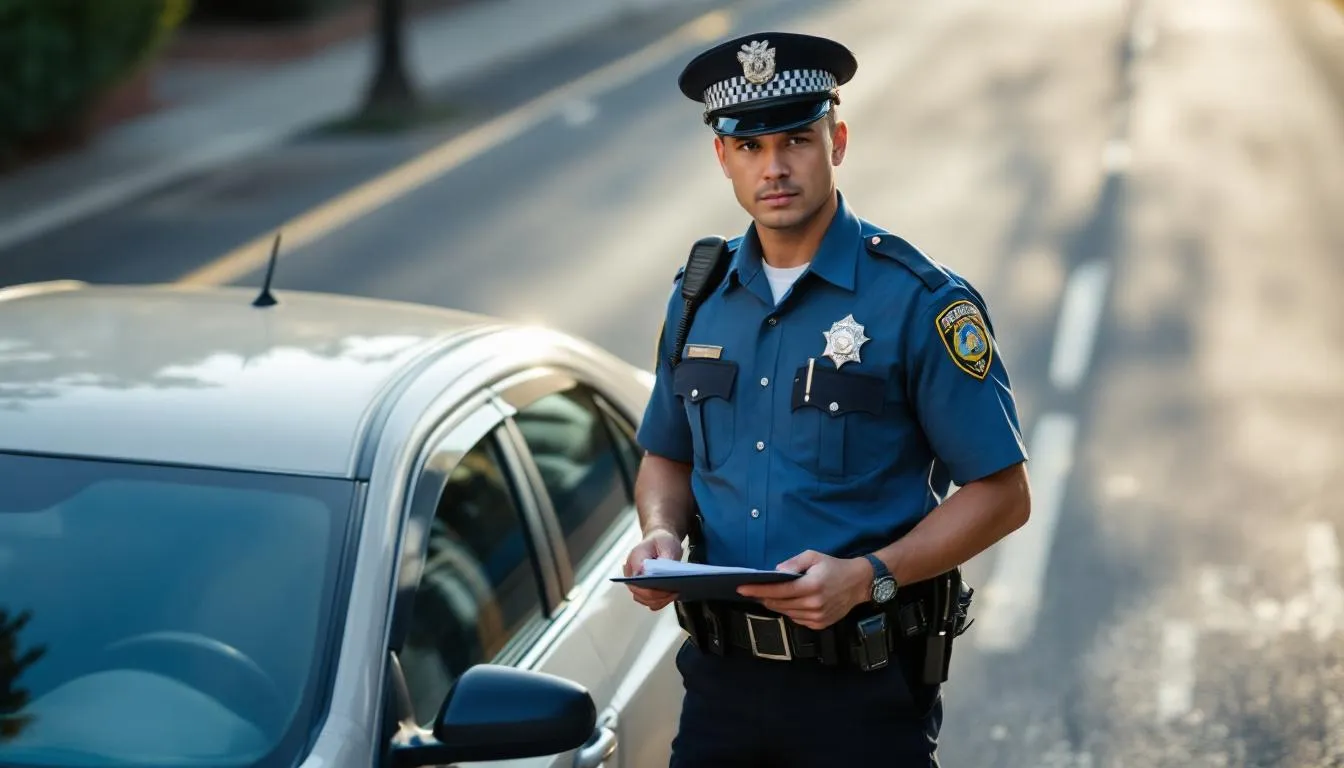Checkpoints DUI: California Legal Requirements & Your Rights 2025

Are DUI Checkpoints Legal in California?
Yes, DUI checkpoints are legal in California, provided they follow specific legal guidelines and constitutional requirements. DUI checkpoints must follow specific rules established by California law and court decisions to remain lawful. While some states prohibit DUI checkpoints based on their state constitution, California allows them. These sobriety checkpoints allow law enforcement to detain drivers briefly to check for driving under the influence without requiring probable cause for each individual stop. Checkpoints that do not follow these specific rules may be considered illegal.
Legal Foundation for DUI Checkpoints
Constitutional Authority
California DUI checkpoints operate under both state law and U.S. Constitution provisions, balancing public safety interests with individual Fourth Amendment rights against unreasonable searches and seizures.
Supreme Court Approval
The U.S. Supreme Court has upheld the constitutionality of properly conducted sobriety checkpoints, recognizing their effectiveness in deterring drunk driving and protecting public safety.
Additionally, research shows that DUI checkpoints are effective in reducing drunk driving incidents.
Mandatory Legal Requirements

Public Notice Requirement
California law requires advance public notification of checkpoint locations and timing. Law enforcement must announce these operations through:
- Local media outlets
- Department websites
- Social media platforms
- Press releases
This transparency requirement helps ensure checkpoints serve their stated purpose of deterrence rather than surprise enforcement.
Neutral Selection Process
Police officers must use predetermined, neutral criteria for selecting which vehicles to stop. Common methods include:
- Every car entering the checkpoint may be stopped, ensuring that each motorist is subject to the same neutral selection process for fairness.
- Every third or fifth vehicle
- Mathematical patterns established before operations begin
Random or arbitrary selection violates constitutional requirements and can invalidate checkpoint stops.
Reasonable Location Standards
Checkpoint locations must meet reasonableness criteria:
- Areas with documented DUI arrest history
- High-traffic roadways where drunk driving commonly occurs
- Locations that don’t create unnecessary traffic hazards
- Sites that allow safe vehicle processing
Safety Precaution Requirements
Proper safety measures must include:
- Adequate lighting and visibility
- Warning signs alerting approaching drivers
- Flashing emergency lights
- Traffic cones and directional markers
- Clear pathways for vehicles and officers
Minimal Detention Protocols
Officers can only detain drivers for the time necessary to:
- Ask basic questions about alcohol consumption
- Observe signs of impairment
- Request driver’s license and registration
- Conduct brief preliminary alcohol screening if warranted
Extended detention requires additional probable cause or reasonable suspicion.
Drivers are legally required to comply with officer instructions during the checkpoint stop. Refusal to comply can result in legal consequences.
Supervisory Oversight
Senior officers must supervise checkpoint operations to ensure:
- Compliance with established procedures
- Proper officer conduct
- Documentation of all stops and arrests
- Adherence to constitutional requirements
Your Rights at DUI Checkpoints

Required Cooperation
You must provide:
- Driver’s license
- Vehicle registration
- Insurance documentation
- Basic responses to officer questions
Optional Participation
You are not required to:
- Answer detailed questions about drinking
- Submit to field sobriety tests (before arrest)
- Take preliminary alcohol screening tests (unless under 21 or on DUI probation)
- Exit your vehicle without reasonable suspicion
Avoiding Checkpoints
You have the right to:
- Turn around before entering a checkpoint (if done legally)
- Take alternate routes
- Avoid the checkpoint area entirely
However, illegal U-turns or traffic violations while avoiding checkpoints can provide probable cause for traffic stops.
What Happens During Checkpoint Stops

Initial Contact
Officers will approach your vehicle and:
- Request identification and documentation
- Ask about alcohol consumption
- Observe your behavior and appearance
- Look for signs of impairment
Impairment Assessment
If officers suspect alcohol influence, they may look for signs of intoxication, such as slurred speech or the smell of alcohol. Officers may also check for impairment caused by drugs, not just alcohol. If a driver appears impaired, further testing may be conducted. In these cases, officers may:
- Request breath test using portable devices
- Ask you to perform field sobriety tests
- Conduct further questioning
- Detain you for additional evaluation
Arrest Procedures
If probable cause exists, officers will:
- Determine if you are intoxicated; if so, proceed with arrest and further testing
- Place you under arrest for DUI
- Read Miranda rights
- Transport you for chemical test administration
- Process license suspension documentation
Common Checkpoint Violations
Improper Notice
Checkpoints conducted without adequate public notice may violate legal requirements, potentially invalidating resulting arrests.
Discriminatory Selection
Arbitrary vehicle selection based on:
- Driver appearance
- Vehicle type
- Racial profiling
- Personal bias
These practices violate constitutional protections and can provide grounds for case dismissal.
Excessive Detention
Holding drivers longer than necessary without reasonable suspicion exceeds checkpoint authority and may violate Fourth Amendment rights.
Challenging Checkpoint Evidence

Legal Defenses
Experienced DUI attorneys can challenge checkpoint stops based on:
- Inadequate public notice
- Improper selection procedures
- Constitutional violations
- Procedural non-compliance
- Officer misconduct
Evidence Suppression
Violations of checkpoint requirements may result in:
- Suppression of breath test results
- Dismissal of DUI charges
- Exclusion of officer observations
- Case reduction or dismissal
Checkpoint vs. Traffic Stop Differences
Probable Cause Requirements
Regular traffic stops require probable cause or reasonable suspicion, while checkpoints operate under administrative search exceptions to Fourth Amendment requirements.
Detention Duration
Checkpoint stops should be brief and limited, while traffic stops can continue as long as reasonable suspicion exists.
Search Authority
Checkpoints provide limited search authority compared to arrests or probable cause situations during regular traffic stops.
Related Terms: dui checkpoints serve, Dui checkpoints work, adequate safety precautions, medical expenses, supervising officers, deter driving, stopping motorists, official nature, exhibit sufficient indicia
Expert Legal Defense
Checkpoint Challenge Experience
Attorney James L. Arrasmith brings nearly 5 years of active legal practice defending clients against checkpoint-related DUI charges. His experience includes:
- Challenging improper checkpoint procedures
- Suppressing illegally obtained evidence
- Negotiating favorable plea agreements
- Protecting client constitutional rights
Proven Results
As a Super Lawyer Rising Star and valedictorian graduate, Attorney Arrasmith understands the complex legal requirements governing California DUI checkpoints and uses this knowledge to build strong defenses.
Comprehensive Defense Strategy
The Law Offices of James L. Arrasmith examines every aspect of checkpoint stops:
- Public notice compliance
- Selection procedure legality
- Officer training and conduct
- Constitutional requirement adherence
- Evidence collection procedures
Protecting Your Rights
Immediate Steps
If arrested at a DUI checkpoint:
- Remain polite and cooperative
- Provide required documentation
- Avoid self-incriminating statements
- Request legal representation
- Document the encounter details
Legal Representation
Early legal intervention can:
- Preserve crucial evidence
- Challenge checkpoint legality
- Protect driver’s license rights
- Develop effective defense strategies
- Minimize potential penalties
Understanding Checkpoint Impact
Public Safety Balance
Courts recognize checkpoints serve legitimate public safety purposes while requiring strict adherence to constitutional protections.
Deterrent Effect
Properly conducted checkpoints help deter drunk driving by increasing perceived enforcement risk among potential violators.
Community Relations
Transparent checkpoint operations help maintain public trust while addressing driving under the influence problems.
Take Action Today
If you were arrested at a California DUI checkpoint, time is critical for protecting your rights and building an effective defense. Checkpoint procedures involve complex legal requirements that experienced attorneys can examine for potential violations.
The Law Offices of James L. Arrasmith provides comprehensive defense against checkpoint-related DUI charges throughout California. With detailed knowledge of checkpoint legal requirements and proven success in DUI defense, Attorney Arrasmith protects client rights while challenging improper procedures.
Contact our office today to discuss your checkpoint arrest and explore your legal options. Don’t let procedural violations go unchallenged – proper legal representation can make the difference between conviction and case dismissal.
Remember: California DUI checkpoints must follow strict legal requirements. When these procedures are violated, experienced legal counsel can use these violations to protect your rights and achieve favorable case outcomes.
Related Terms: law enforcement officers, drunk drivers, impaired driving, law enforcement agencies, alcohol related crashes, impaired drivers, dui checkpoints stop, identify impaired drivers, dui checkpoints
Official Resources
California Office of Traffic Safety: https://www.ots.ca.gov/ – Official information about DUI enforcement and checkpoint programs
California Courts: https://www.courts.ca.gov/ – Official court procedures and legal rights information













